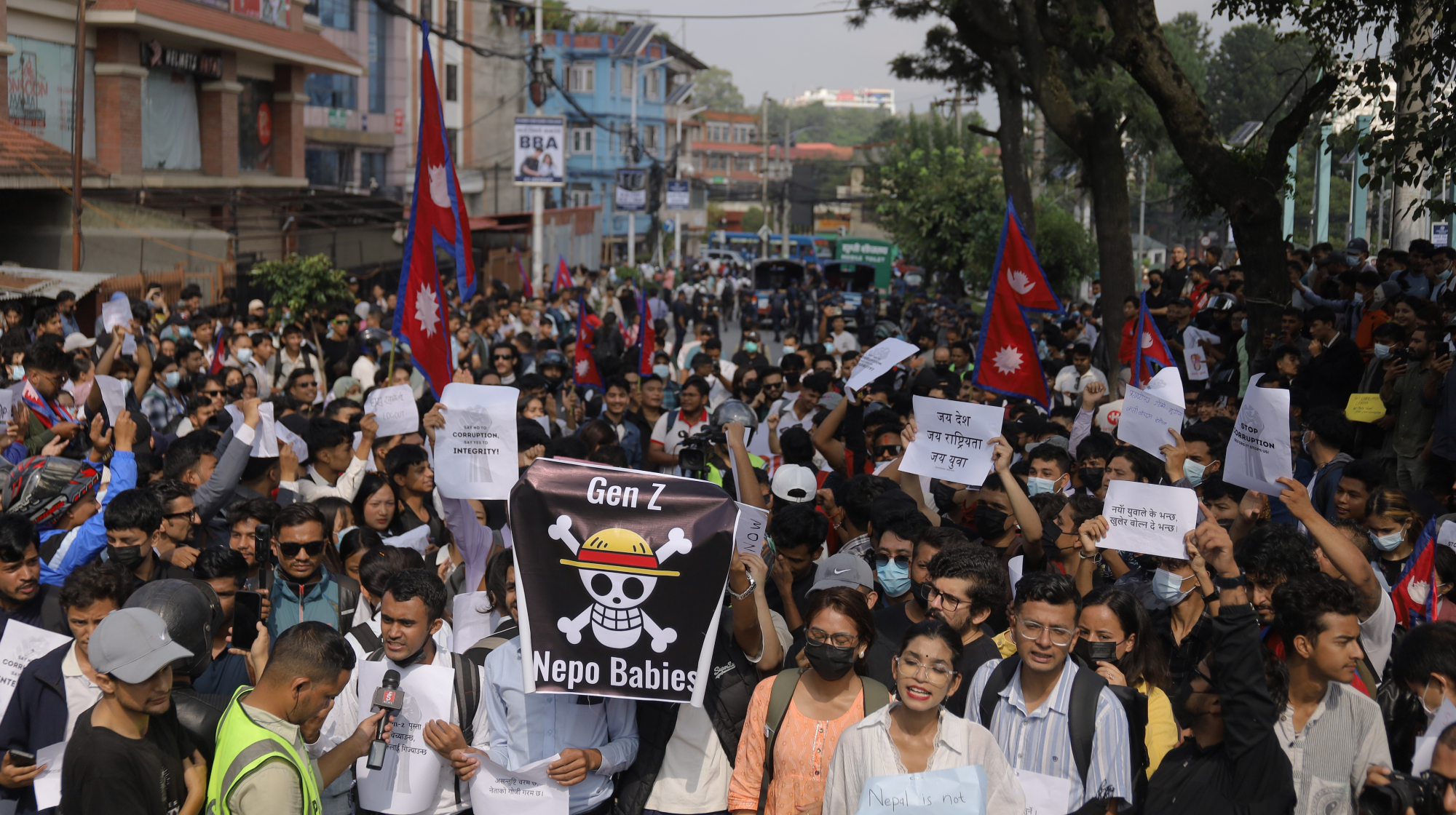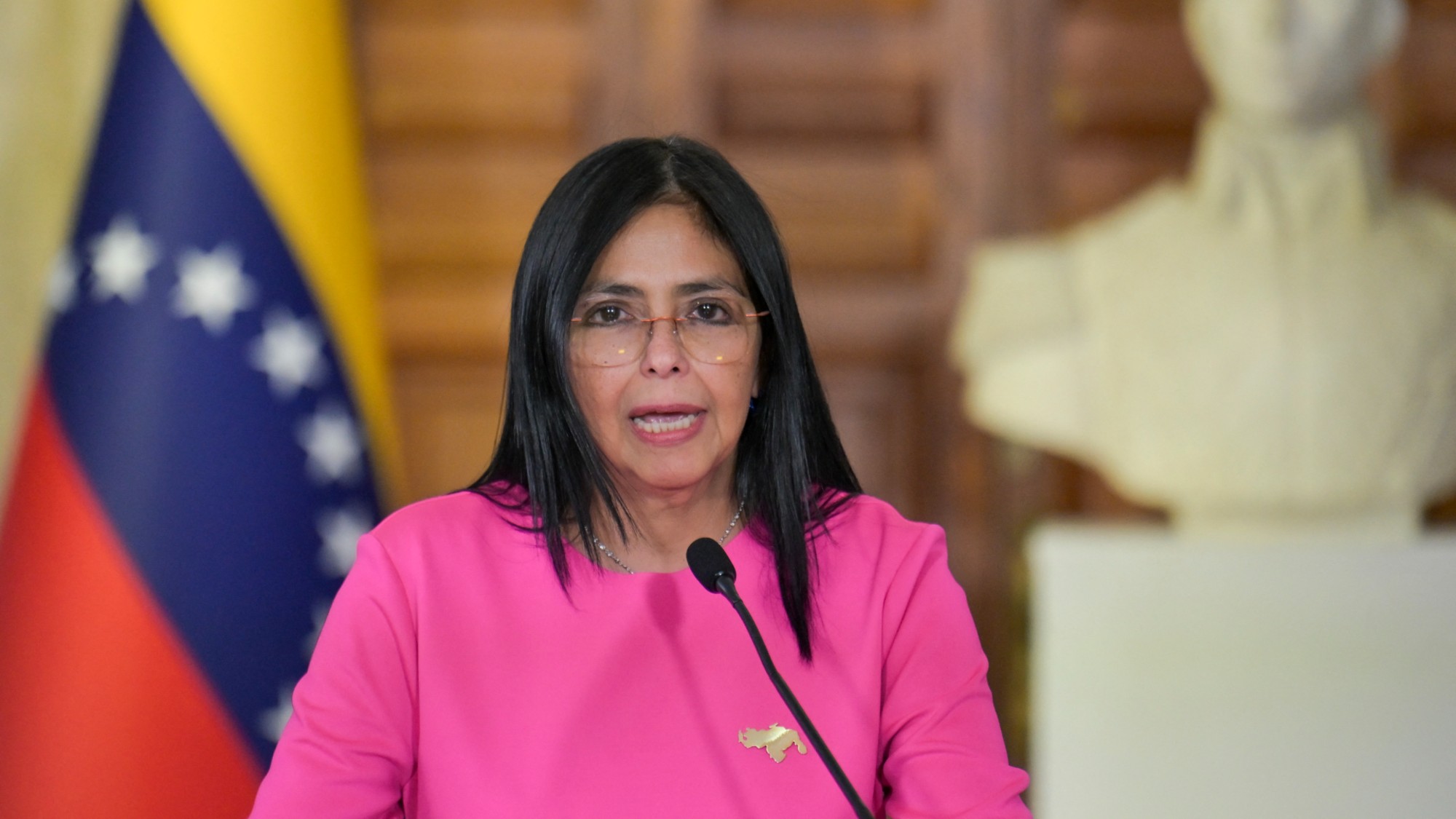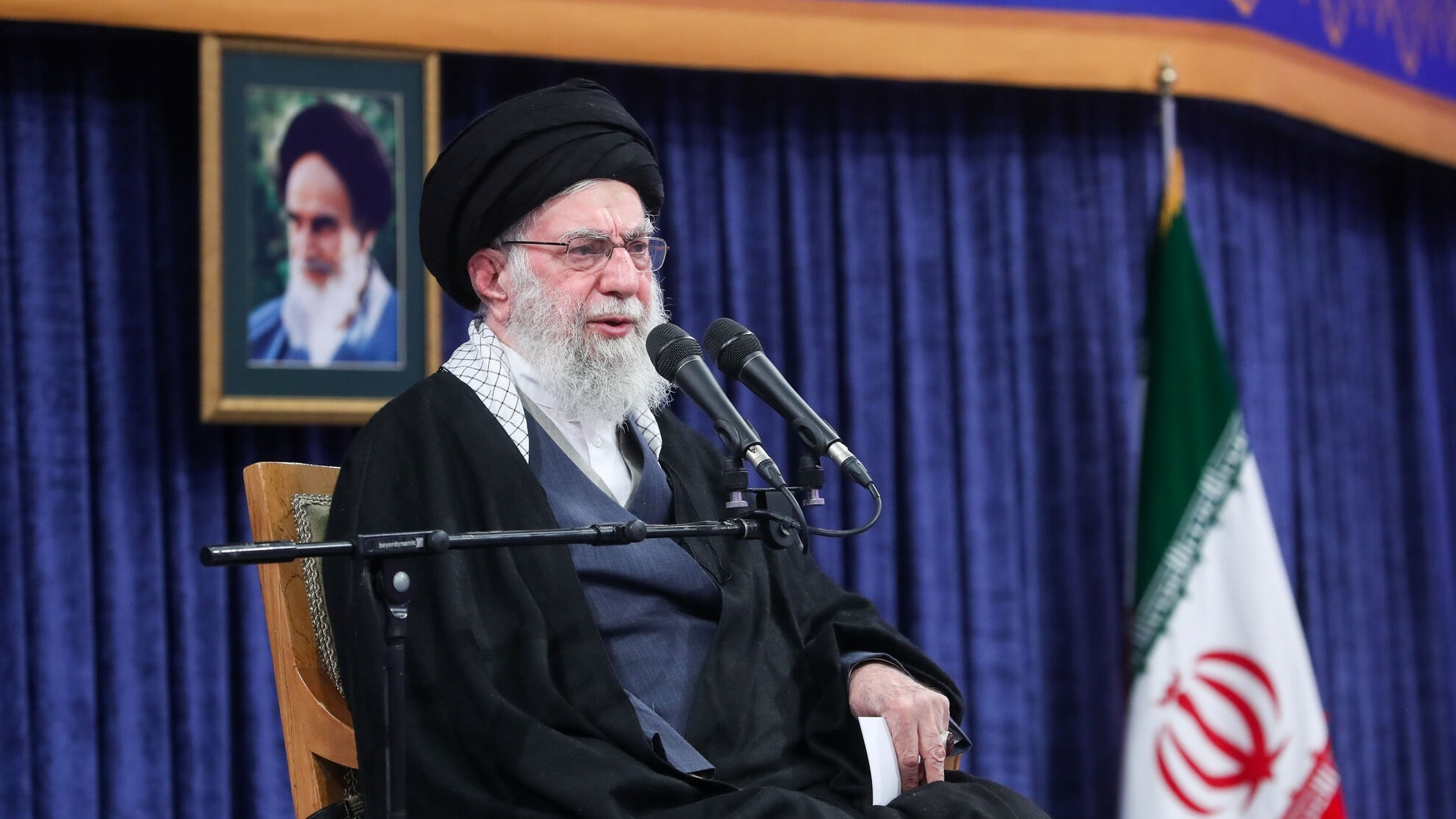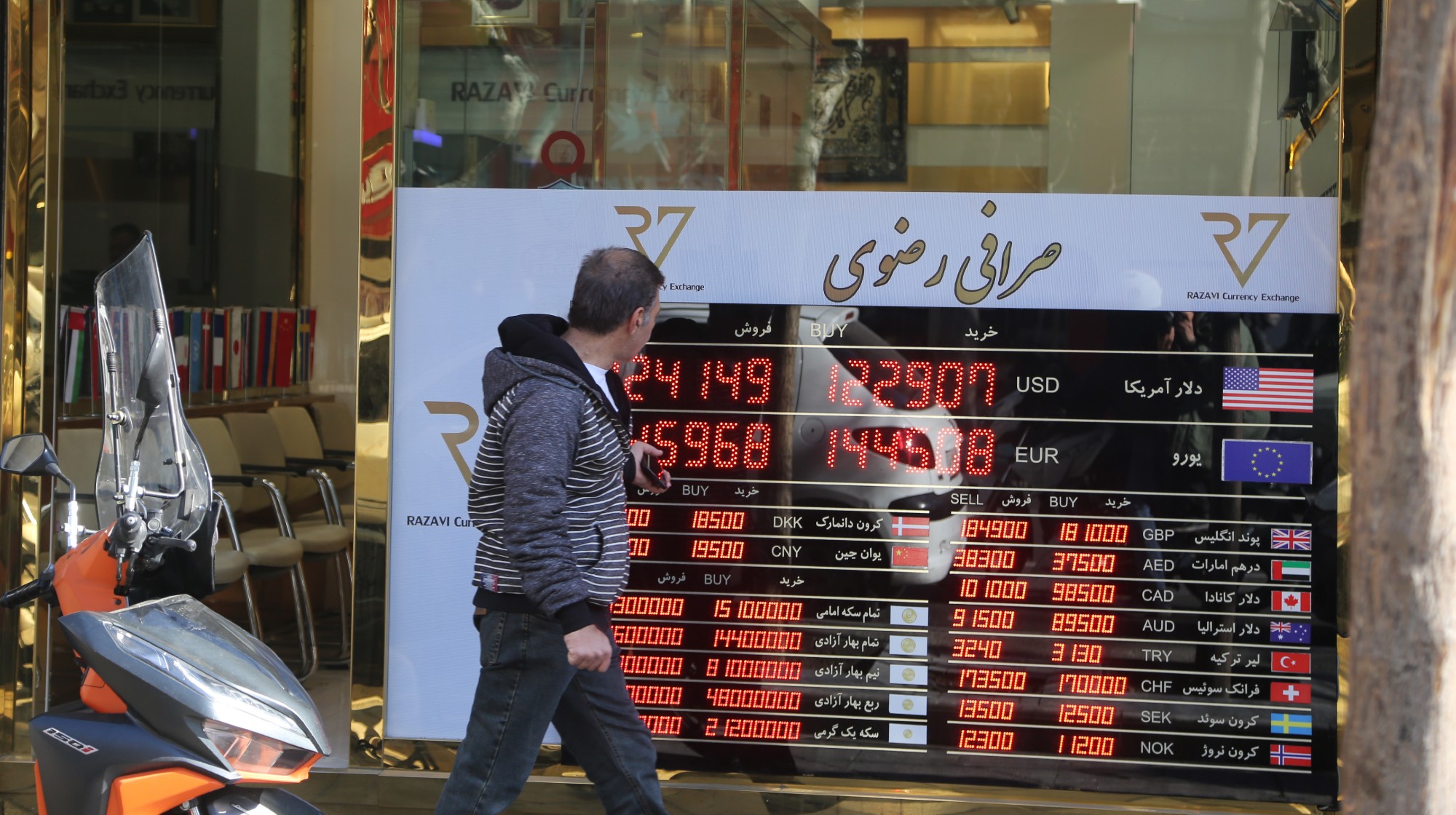Why Gen Z in Nepal is dying over a state social media ban
A crackdown on digital platforms has pushed younger Nepalis into increasingly violent clashes with government forces


A free daily email with the biggest news stories of the day – and the best features from TheWeek.com
You are now subscribed
Your newsletter sign-up was successful
Protests over political corruption and an ongoing effort to regulate social media have plunged Nepal into a state of civic unrest. Led predominantly by younger organizers and activists, demonstrations emerged as Nepal's government banned (and then returned) access to popular platforms like WhatsApp, Facebook and YouTube for failing to register their products under a new national law. At least 19 people were killed and dozens more injured amid protests in the Nepali capital of Kathmandu on Monday. More than simply a matter of access to apps, the Nepali protests have become a generational conflict over the region's future.
'Robust space for debate' faces 'censorship'
Prime Minister K.P. Sharma Oli resigned on Tuesday in an unsuccessful effort to quell the disquiet. His critics accused his government of "trying to curtail freedom of expression" in a nation where free speech is "highly prized," said The New York Times. Nepal generally offers "robust space for debate," while similar freedoms have "shrunk" in neighboring countries. The government's social media regulatory effort, requiring that companies "appoint a liaison office or point in the country," has been "widely criticized as a tool for censorship and punishing government opponents who voice their protests online," The Associated Press said. Rights groups have similarly accused the Nepali government of working to "curb freedom of expression and violate fundamental rights" with this legislation.
The government has claimed it is not "banning social media" but trying to "bring them in line with Nepali law," said the BBC. That explanation has not been enough for many Nepalese, who "heeded a call by demonstrators describing themselves as Generation Z" to gather at the parliamentary building in Kathmandu on Monday. There, authorities used force including "water cannons, batons and firing rubber bullets," resulting in the day's double-digit fatalities, said the network.
The Week
Escape your echo chamber. Get the facts behind the news, plus analysis from multiple perspectives.

Sign up for The Week's Free Newsletters
From our morning news briefing to a weekly Good News Newsletter, get the best of The Week delivered directly to your inbox.
From our morning news briefing to a weekly Good News Newsletter, get the best of The Week delivered directly to your inbox.
"At the core" of the protesters' demands "lies a call for the rule of law, where fairness, accountability and justice prevail over favoritism and corruption," said Yog Raj Lamichhane, an assistant professor at Nepal's Pokhara University, to Al Jazeera.
Dissatisfaction over 'disbelief in authority'
Experts have warned the Nepali government that Monday's violent clashes were an "outburst of accumulated frustrations of youths caused by corruption, bad governance, abuse of power and the arrogance of the successive governments and political parties," said The Kathmandu Post. The protests are "fueled by the frustration of youth and their disbelief in authority, as they feel sidelined from decision-making," said Lamichhane.
But while the social media ban may have "added fuel to the unrest," said Lamichhane, the broader grievances "extend far deeper" and are "rooted in longstanding neglect and the silencing of youth voices" in Nepal. The protests may be stunning in their size and scale, but the sentiments fueling the demonstrations are "far from sudden," said The Hindustan Times. Most recently, that anger manifested in Nepal's trending "Nepo Kids" hashtag on social media, which featured "children of politicians photographed enjoying luxurious lifestyles — to expose alleged nepotism and corruption." Given Nepal's "lively democracy and active civic space," said United Nations Human Rights office spokesperson Ravina Shamdasani, "dialogue is the best means to address young people's concerns."
A free daily email with the biggest news stories of the day – and the best features from TheWeek.com
Rafi Schwartz has worked as a politics writer at The Week since 2022, where he covers elections, Congress and the White House. He was previously a contributing writer with Mic focusing largely on politics, a senior writer with Splinter News, a staff writer for Fusion's news lab, and the managing editor of Heeb Magazine, a Jewish life and culture publication. Rafi's work has appeared in Rolling Stone, GOOD and The Forward, among others.
-
 The Olympic timekeepers keeping the Games on track
The Olympic timekeepers keeping the Games on trackUnder the Radar Swiss watchmaking giant Omega has been at the finish line of every Olympic Games for nearly 100 years
-
 Will increasing tensions with Iran boil over into war?
Will increasing tensions with Iran boil over into war?Today’s Big Question President Donald Trump has recently been threatening the country
-
 Corruption: The spy sheikh and the president
Corruption: The spy sheikh and the presidentFeature Trump is at the center of another scandal
-
 Grok in the crosshairs as EU launches deepfake porn probe
Grok in the crosshairs as EU launches deepfake porn probeIN THE SPOTLIGHT The European Union has officially begun investigating Elon Musk’s proprietary AI, as regulators zero in on Grok’s porn problem and its impact continent-wide
-
 Panama and Canada are negotiating over a crucial copper mine
Panama and Canada are negotiating over a crucial copper mineIn the Spotlight Panama is set to make a final decision on the mine this summer
-
 Iran unleashes carnage on its own people
Iran unleashes carnage on its own peopleFeature Demonstrations began in late December as an economic protest
-
 Trump, Iran trade threats as protest deaths rise
Trump, Iran trade threats as protest deaths riseSpeed Read The death toll in Iran has surpassed 500
-
 Iran cuts internet as protests escalate
Iran cuts internet as protests escalateSpeed Reada Government buildings across the country have been set on fire
-
 Delcy Rodríguez: Maduro’s second in command now running Venezuela
Delcy Rodríguez: Maduro’s second in command now running VenezuelaIn the Spotlight Rodríguez has held positions of power throughout the country
-
 Iran’s government rocked by protests
Iran’s government rocked by protestsSpeed Read The death toll from protests sparked by the collapse of Iran’s currency has reached at least 19
-
 Why is Iran facing its biggest protests in years?
Why is Iran facing its biggest protests in years?TODAY’S BIG QUESTION Iranians are taking to the streets as a growing movement of civic unrest threatens a fragile stability
